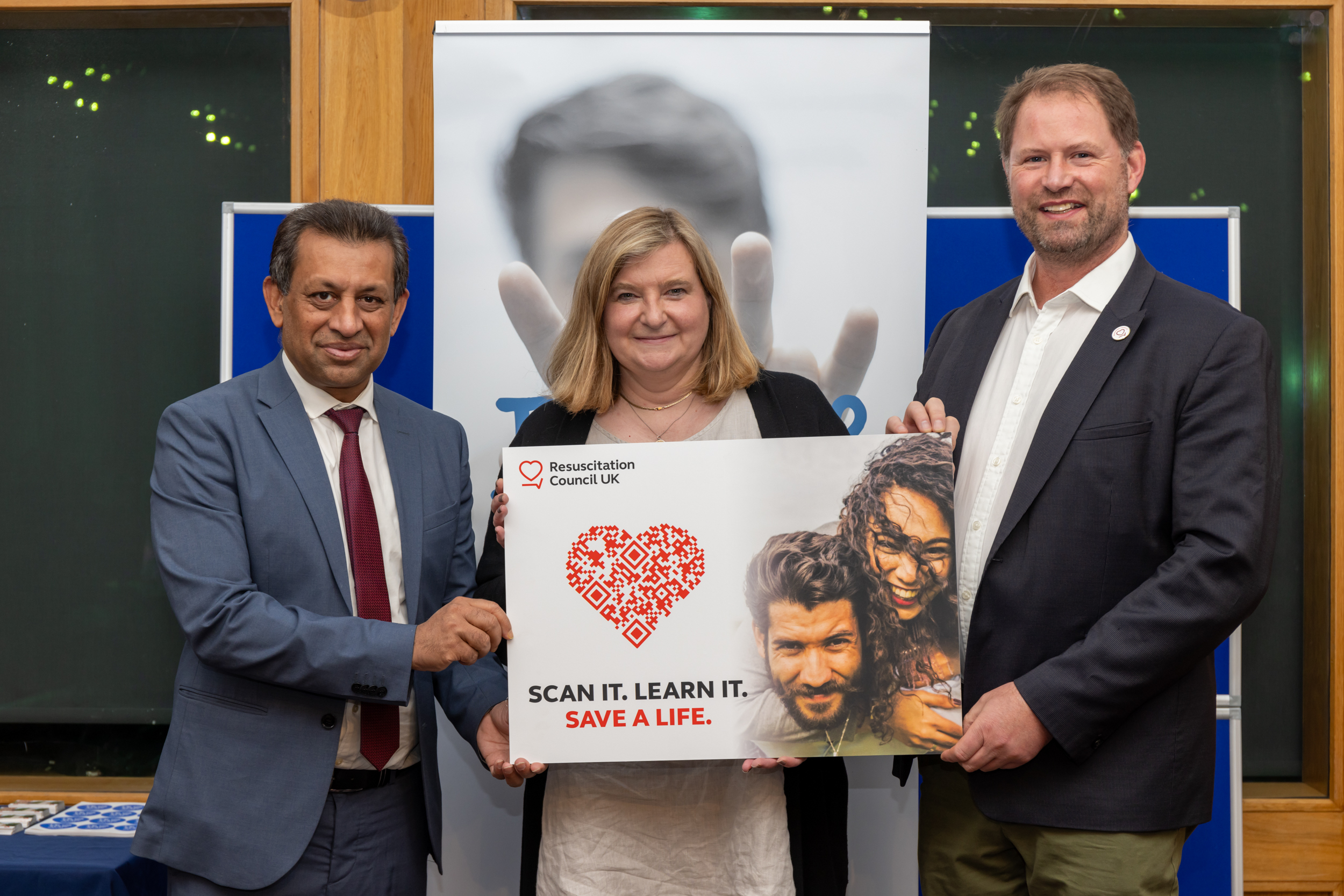A cardiac arrest is the ultimate medical emergency, when the heart stops beating, and the individual is clinically dead.
Every year 3,000 people in Scotland suffer a cardiac arrest, yet they don’t have the same rehabilitation services and psychological support as those who have suffered a stroke, heart attack or been diagnosed with cancer.
Resuscitation Council UK (RCUK) has teamed up with the Scottish Minister for Public Health and Women’s Health to help cardiac arrest survivors and their families make the best possible recovery.
On Thursday 19 September, RCUK hosted a Scottish parliamentary event to present a new ‘My Right to Cardiac Arrest Recovery’ quality standard, and to ask MSPs to make it part of Scotland’s ‘Heart and Disease Action Plan’.
The quality standard looks at the recovery and rehabilitation needs of cardiac arrest survivors, both in and out-of-hospital. It covers the critical period from before hospital discharge to long-term follow-up and outlines key measures to ensure that survivors and their families receive access to essential care, enhanced service quality and overall better health outcomes.
Jenni Minto, Minister for Public Health and Women’s Health gave the keynote speech, welcoming the new quality standard.
Ms Minto said: “I spoke to many cardiac arrest survivors and their families, who told me that as a result of a cardiac arrest, they often struggle with anxiety, depression, and post-traumatic stress.
“It makes me all the more determined to ensure timely and appropriate support and the best aftercare for survivors, bystanders and first responders.
“Although one in ten now survive out of hospital cardiac arrest, every life lost is a tragedy and I know we can do more. So I commend RCUK on the publication of the Survivor Quality Standard.”
Following a cardiac arrest, nearly half (50%) of survivors have mild cognitive impairment and four in ten report limitations due to physical difficulties.
James Cant, CEO at RCUK said: “Currently, there is no minimum level of follow-up applied equally across the country. Meaning that many patients are missing out on vital services helping them to a full recovery. By making this quality standard part of Scotland’s ‘Heart and Disease Action Plan’, Scotland can solidify its position as a leader in cardiac arrest care.”
A new collaboration between health, charity, and research organisations will support the delivery of the RCUK quality standard in Scotland. ‘Save A Life for Scotland Recovery' will work alongside the successful Save A Life For Scotland partnership, which has seen a 50% increase in the number of cardiac arrest survivors since 2015.
Dr Vicky Joshi, Lecturer at Glasgow Caledonian University said: "Many cardiac arrest survivors fall between existing health services. SALFS Recovery will bring organisations together to develop a Scottish post-cardiac arrest pathway, ensuring survivors can access both existing services and specialist support when needed."
You can access My Right to Cardiac Arrest Recovery’s quality standard here.
Case study
Michelle Macleod was at the end of a relay marathon event in August 2019 when she suffered a sudden cardiac arrest. She was airlifted to hospital by helicopter and taken to Western Isles Hospital and was then airlifted to Glasgow. She spent 12 weeks in hospital there and had an implantable cardioverter defibrillator (ICD) fitted before being discharged.
“I’m so grateful for all the people who helped save my life. However, I have found all elements of my life more difficult as a result of my sudden cardiac arrest. In some places across Scotland, there’s not a minimal requirement to follow up with someone who’s had a cardiac arrest. This means lots of people could be missing out on the vital treatments and support they need to make a full recovery."
“That’s why I am asking the Scottish Government to work with Resuscitation Council UK and other key partners, to ensure everyone affected by a cardiac arrest has access to appropriate, ongoing, personalised support – giving them their right to recovery."
– Ends –
For more information or to request for an interview or case studies please call the Resuscitation Council UK Press Office on 0207 388 4678 or email stella.hindle@resus.org.uk / tom.shearsmith@resus.org.uk / communications@resus.org.uk
